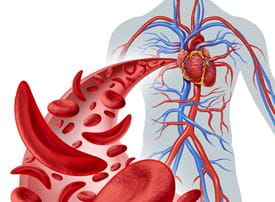- Genetic mechanisms of pulmonary hypertension and right heart failure, with a focus on endothelial cell signaling
- Genetic mechanisms of inflammation-mediated ventricular tachycardia and cardiomyopathy in patients with sickle cell disease
- Novel molecular mechanisms of beta blockers in myocardial infarction via beta-adrenergic-independent signaling
 In 2024, Desai was awarded a $3 million grant by the U.S. Department of Defense to evaluate a beta blocker, propranolol, typically used to treat heart problems, as a possible therapeutic for patients with sickle cell disease, where the median age of death is 43.
In 2024, Desai was awarded a $3 million grant by the U.S. Department of Defense to evaluate a beta blocker, propranolol, typically used to treat heart problems, as a possible therapeutic for patients with sickle cell disease, where the median age of death is 43. 